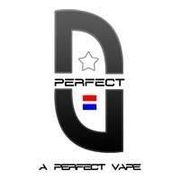The Death Of Vape, Or Just a Government Assisted Corporate Takeover?

By now, you’ve heard the news that President Trump, assisted by Alex Azar, the US Secretary of Health and Human Services (HHS), announced a nationwide ban on e-cigarette flavors. You may have also heard that as of May 2020, existing tobacco and non-flavored products will also need to be approved to remain on the market. What this means is that as of May 2020, ALL products not approved by the FDA will be off the market. Currently, there is only ONE similar device approved by the FDA, and that’s the iQOS “heat not burn” device, manufactured by Phillip Morris International, which was recently released in Japan, and has, conveniently, recently been released for sale in the USA. This coincidence may be hard to ignore, and I don’t think the timing makes it any easier to dismiss.
This pending ban, which is effectively Prohibition 2.0, is being driven by a number of very recent illnesses associated with vaping. What you may not have heard, as the information has been intentionally suppressed, is that these illnesses were not caused by vaping nicotine. Of the identified cases, 84% of those who became ill admitted to using THC vape cartridges, according to this article by CEI.
Since many of these people who got sick from using these illicit cartridges are under the legal age to use THC, or lived in areas where THC is illegal, it’s no surprise that many of them wouldn’t admit to using illicit products.
From all appearances, the President and the Department of HHS made a knee-jerk reaction to these recent illnesses, and aided by the media and their sensationalization of the illnesses, decided that prohibition of these life-saving and harm-reducing products was the appropriate response. I don’t understand why it makes sense to ban a legal product because someone used it for an illegal product. It’s akin to banning auto sales because someone once used a car to traffic Fentanyl.
It’s no secret that the CDC and the FDA have been trying to eliminate the e-cigarette and vape market for some time. In May of 2016, the FDA released regulations that restricted the manufacture and development of new vapor products, effective August 8th, 2016. For over two years, the US vape industry has been struggling to meet unreasonable and onerous regulations that were designed to destroy the industry. They have been doing all of this while ignoring studies and reports like this one from the UK’s Royal College of Physicians, stating that the risks associated with vapor products are “Unlikely to exceed 5% of the dangers of smoking combustible cigarettes”. By contrast, Public Health England recommends using vaping as a smoking cessation tool, and has even begun to open vape shops inside hospitals.
This begs the question; why is vaping so accepted in the UK, and so denigrated in the USA?. I think there are a lot of reasons why, but it all comes down to one thing: money.
In 1998, the Tobacco Master Settlement Agreement (MSA) awarded vast sums of money to 46 states, ostensibly to offset the health care costs associated with smoking combustible cigarettes. The agreement requires the tobacco companies to pay billions of dollars a year to the states because of the risks associated with smoking. The states promised to spend a portion of the funds on smoking cessation programs and education, but currently, less that 3% of these funds are being spent on smoking cessation programs and education.
As of January 2019, it is estimated that New York alone has received over $38 billion in combined MSA payments and taxes associated with cigarette sales. The total amount paid out by the MSA since its enactment in 1998 is approximately $161 billion. No, that is not a typo. That’s billion, with a ‘B’. As you can see, these states have a very large financial interest in keeping people from quitting smoking.
As vaping became mainstream, MSA payments have decreased. This chart shows how much has been paid out because people continue to smoke combustible cigarettes. Vapor products are not covered under this agreement, and as such, do not contribute to this payout. Many states began by taxing the sales of vapor products, some even as high as 92%. They quickly found out that these taxes were driving small “Mom and Pop” vapor shops out of business, which generated no income, and that the taxes were no replacement for combustible cigarette sales. These states decided that the only way to keep making money from nicotine addiction was to force people back to smoking combustible cigarettes. At the time of this writing, both New York and Michigan have banned flavored e-liquids by Executive Order, effectively killing the vapor industry in those states. Ohio is currently considering a measure that will ban all flavored e-liquids.
Tobacco companies have always been the enemy of the people, with about 480,000 people dying annually from smoking related illnesses. Tobacco companies have profited from the death of Americans for decades and the rise of vaping has given them pause. Since vapor products are not covered by the MSA, tobacco companies may have decided that getting into the vapor industry would not only relieve them from the MSA financial burden, but would also allow them to maintain their trillions of dollars in profits. Altria, the parent company of Phillip Morris, purchased a one third stake in JUUL, to the tune of $12 billion dollars. Phillip Morris released the iQOS. Lorillard markets the Blu e-cigarette, and there are many others.
Nobody is fool enough to believe that these major tobacco companies have no influence on the FDA. These companies spend millions of dollars a year on lobbyists in order to have legislation and regulations designed for their best interests. These gigantic tobacco companies have everything to gain and nothing to lose. Once the government eliminates their competition, they will be free to push their products through the PMTA process, and pick up the 10-14 million customers the government took away from 14,000 small businesses, who were the ones that invented this life-saving technology in the first place.
Mark my words: If the vapor industry is decimated by this prohibition, and all or almost all of the small vapor shops go out of business, then shortly afterwards, most of the Big Tobacco vapor products will gain FDA approval, and flood the market with their own systems. Once again, the tobacco companies will have Americans by the throat.
Now, if that isn’t the very definition of a Government Assisted Industry Takeover, I don’t know what else could be.
A Perfect Vape, Inc. is an electronic cigarette manufacturer in Colorado Springs, CO, They have been in business for over 8 years, and have helped hundreds of people quit smoking and find a healthier alternative to combustible cigarettes, They ID everyone, and have never sold to anyone under the legal age to smoke. A Perfect Vape supports reasonable regulation, and keeping all nicotine products out of the hands of anyone under the legal age. If you have questions or comments on this article, they may be reached at 719-358-6641, or via email at sales@aperfectvape.com
About the Business
Have a question? Ask the experts!
Send your question

